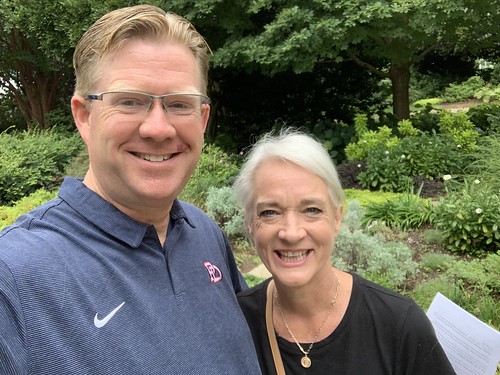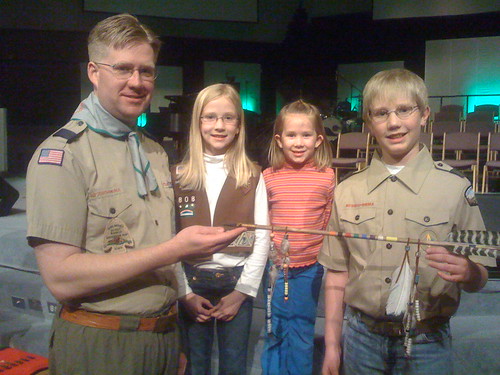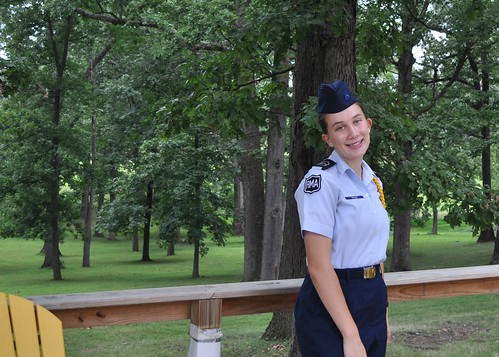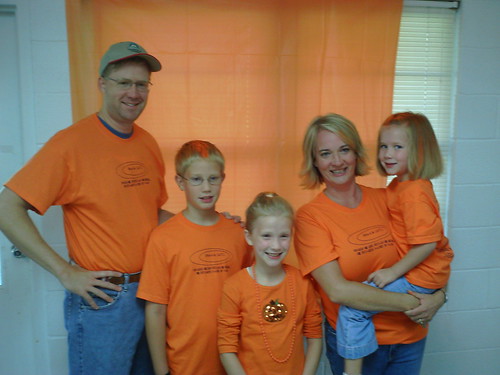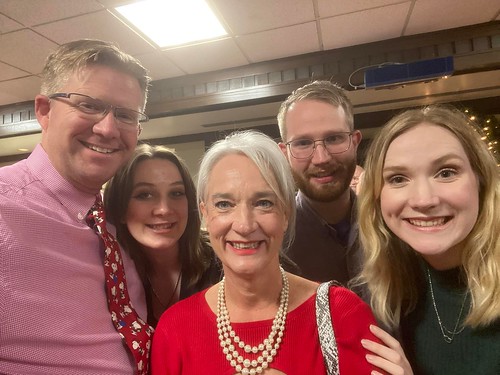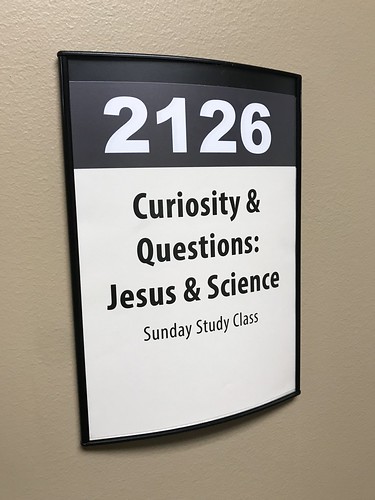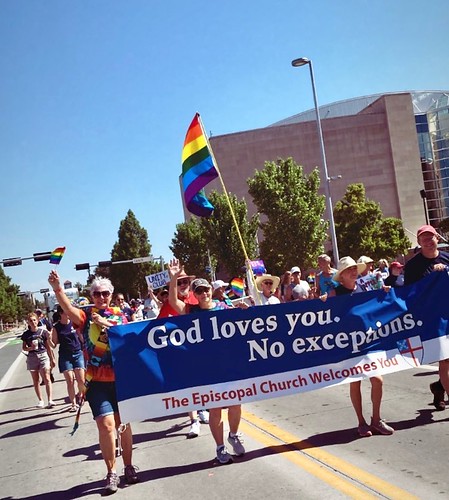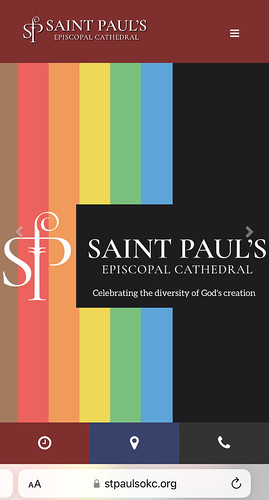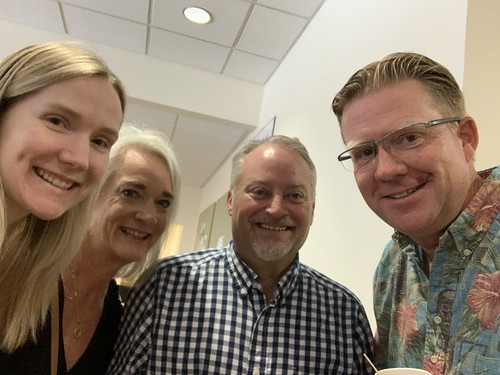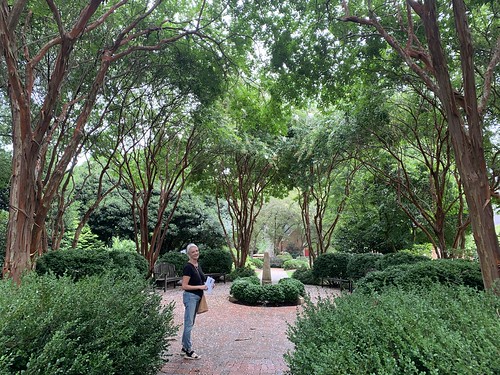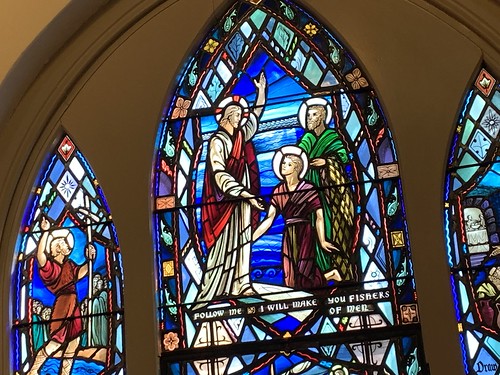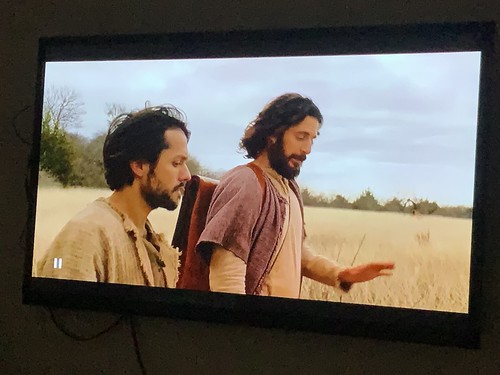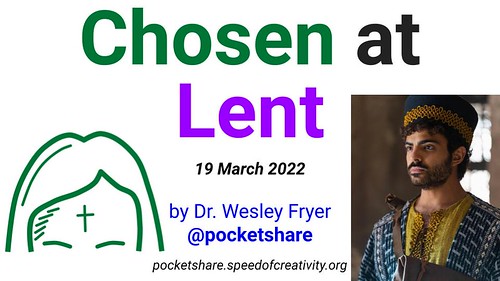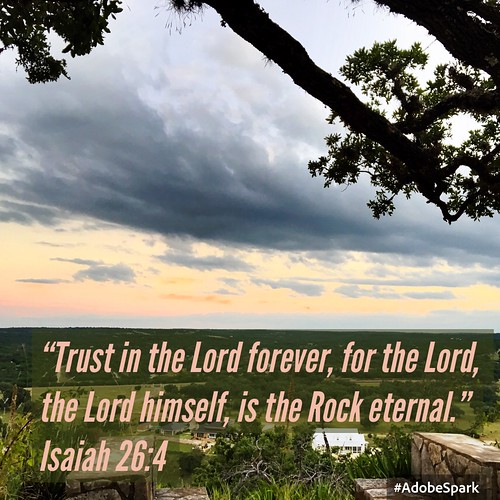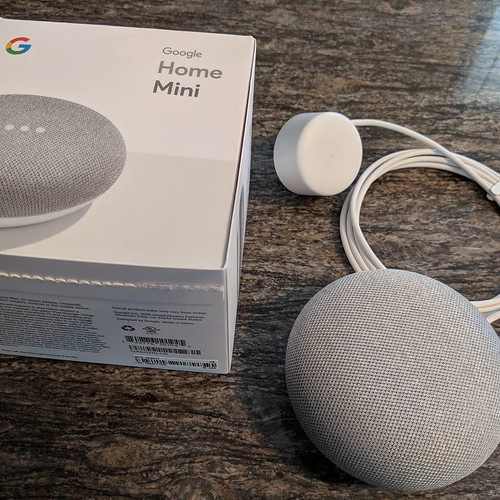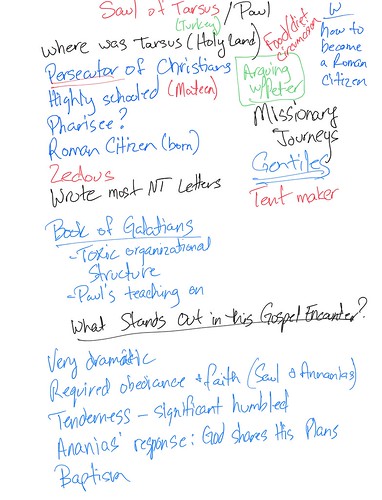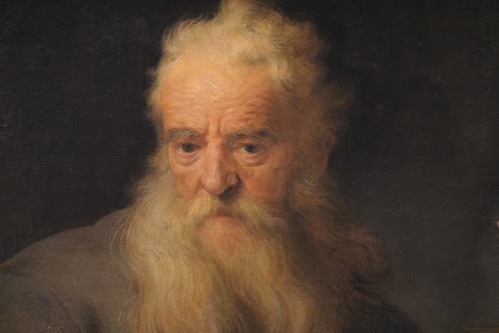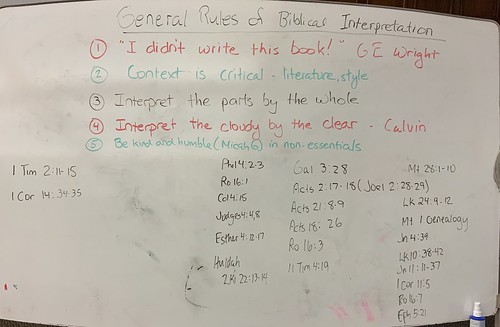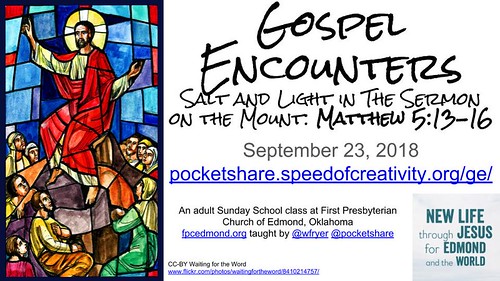As new residents of Matthews, North Carolina, and the Charlotte area, we are hunting for a new church. In this post, I’ll share about four of the churches we have visited so far, and some reflections about each one. I’m also going to reflect on my own history with Christian churches, and what I remember about “church hunting” in the past.
For more background on this journey, see my December 2021 post, “Called to an Inclusive & Affirming Church.”
Searching for a new church is NOT something I have done very many times in my own life. I grew up in the Presbyterian Church, living in five different states before our family settled in Manhattan, Kansas, and found First Presbyterian Church at 801 Leavenworth. That was my home church most of my life growing up, and it was a wonderful place to learn more about God, the Bible, and gain some insights into the life of Jesus Christ. It was also the sponsor organization for my Boy Scout troop, Troop 74, led by Ray Hightower. I am thankful to be an Eagle Scout of Troop 74.
One of my most vivid memories of FPC Manhattan was from 8th grade Communicant’s class, following a Wednesday evening lesson that our pastor, Phil Gittings, had taught on “The Prodigal Son.” I stayed after class to ask him about it, because it just didn’t make any sense to me. It was not fair. It was not “just.” I couldn’t understand it. I remember Pastor Gittings mainly telling me, “That’s just the way God is.” It didn’t resolve my confusion, but that memory stayed with me. That cognitive dissidence has transformed into more understanding with the passage of time and my own life experiences as a husband, father and teacher. FPC Manhattan certainly was (in aggregate) a great church to grow up in.
When I went to the Air Force Academy in 1988, we thankfully had chapel services, and I found great solace there during the challenges of basic training and my freshman year. Since our youngest daughter is currently attending prep school at Randolph Macon Academy as a Falcon Scholar for the Air Force Academy, I’ve been reflecting much more on my own years at USAFA.
I sang in the Protestant choir my freshman year at USAFA, and I remember making a memorable trip up to New England and singing in the state house in New Hampshire or Vermont. But in my upper class years, my chapel attendance slackened, and I didn’t attend church much at all.
Upon graduation from the Air Force Academy, I had a choice: Go directly to pilot training or accept a Fulbright scholarship to study Latin American security issues in Mexico City. I chose the latter. In addition to attending Catholic worship services with the family of Vern Conaway, one of my Academy classmates (who were also assigned at that time to the US Embassy in Mexico City,) I found an English-speaking Protestant congregation in downtown Oklahoma City. Again, I found a sponsored Boy Scout troop at the church, for whom I served as an assistant scoutmaster that year, and my friend, Paco Araujo.
When I moved to Lubbock Texas, to start pilot training at Reese Air Force Base in the summer of 1993, I found Westminster Presbyterian Church. The church family at Westminster loved and cared for me in transformative ways, through some of the darkest and most difficult seasons of my life. Through it all, I met my wife, Shelly, in 1995 on a mission trip to Tijuana, Mexico sponsored by WPC. All three of our children were baptized at Westminster and had wonderful formative experiences in the loving congregation there. Shelly served as an elder at WPC, I served as a Sunday school teacher, and we both grew in love and fellowship as a family and as a member of the church community.
When we moved to Oklahoma City in 2006, we immediately visited First Presbyterian Church of Edmond. One of our friends at WPC Lubbock had come from that church, and on their recommendation it was the first church we visited. It also turned out to be the only church we visited, because the Sunday we first came, we met Jim and Carol Hartzog. They took us out to lunch after the service, and shared how FPC Edmond was looking for a full-time preschool ministry director. At WPC in Lubbock, Shelly served as the nursery coordinator on a volunteer basis, and then on a paid, quarter time basis. God opened the door for Shelly to enter full-time ministry at FPC Edmond, and she served as the Director of Preschool Ministries there for seven years. I eventually was ordained as a deacon at FPC Edmond, and then as an elder. I later became a Sunday school teacher, and remained active in the FPC Edmond men’s group throughout our 15 years of membership there. FPC Edmond was the church where all our children grew up, they all attended Communicant’s class, and they all experienced God‘s love through the church.
In 2021, anticipating our departure from Oklahoma and move to North Carolina, I did not expect to be church shopping. But, the Lord put it on our hearts to seek an inclusive and affirming, as well as more ethnically diverse, church, and we found Saint Augustine’s of Canterbury. Jason and Traci Elliot, who had been longtime members at FPC Edmond, had joined St Augustine‘s a couple years earlier with their son, Josh.
At the time, I thought this church change (which was very challenging by the way, since I was in the midst my third year of adult Sunday school teaching with a dear class community at FPC Edmond we absolutely LOVED) it was primarily for the benefit of our children, who would (eventually) be on their own to find a local church, when they moved away from us. I thought this process would be instructive for them: How to look for a church, discern the Holy Spirit as well as a focus on Jesus Christ, and find a church community that could invite them into authentic worship, disciple them in their continued growth as followers of Jesus, and also be a community that could support and love them through whatever circumstances they found themselves.
Time will tell if that expectation was on target. But what I know now is that the experience of seeking and finding St Augustine‘s, Father Joe, and the wider Episcopal church community was incredibly powerful for me personally. When I served on our church session in Edmond during the time we left the PCUSA denomination and joined ECO, I was told we were doing that because the PCUSA congregations that were in the majority in General Assembly were not “Jesus focused.” I had the impression, which I admittedly did not research and check out myself, but “accepted on authority,” that these churches were more “Universalist.” Shelly and I did visit one of these churches in Santa Fe, New Mexico, back when we lived in Texas, when we were on a retreat weekend with WPC. The name of Jesus Christ was never mentioned in the sermon, and Christianity was presented as one of a multitude of pathways to finding God. Jesus was not preached as “the gate.” My understanding was that the confessing church movement within Presbyterian circles was focused on encouraging a prioritization of Biblical reading and Scriptural authority, as well as the primacy of Jesus Christ in His message of salvation by grace.
Another aspect of this departure from PCUSA to ECO involved beliefs and treatment of the LGBTQIA+ community. As a member of our session at that time, I was told that this departure was inaccurately being portrayed in the media as an “anti-gay movement.” We were told it was not, it was rather focused on scriptural integrity and the holiness of the Bible. But as one of our children later brought to my attention through close reading of ECO policy and theology, the denomination is absolutely NOT affirming or inclusive. I am somewhat ashamed to admit that at that time, I did not seriously interrogate these issues and important beliefs for myself, I just accepted them on authority from other leaders in our church.
What I learned in the process of searching and finding a new church in Oklahoma City is that there absolutely ARE inclusive and affirming Christian churches which DO focus on Jesus and his unique and exclusive claims about eternal salvation. It is not true that every church that is inclusive and affirming of the LGBTQIA+ community is universalist.
Through my seven years of working at Casady School and being a part of the community there, I was introduced eventually (along with Shelly) to Episcopal faith traditions. The three OKC Episcopal churches we eventually found which ARE Jesus focused, Bible exalting, and inclusive as well as affirming are Saint Augustine’s of Canterbury, Grace Episcopal of Yukon, and St Paul’s Episcopal Cathedral in downtown Oklahoma City. This discovery was a huge “a-ha moment” for me personally, and has had a significant impact on me as well as Shelly as we search for a new church home here in North Carolina.
With this background and these recent experiences in mind, we have embarked on the journey to find a new church home and church family here in the Charlotte, North Carolina area. Both Shelly and I now love Episcopal traditions and worship, but as lifelong Presbyterians, I am drawn to want to find a Presbyterian congregation if we can. I absolutely loved teaching adult Sunday school the last three years we were at FPC Edmond. (I had also served as an adult Sunday school teacher for awhile at WPC in Lubbock.) I feel an undeniable call on my life to integrate my affinity for technological communication, teaching, and evangelism for Jesus, and I sense my opportunities to do that are greater within the Presbyterian Church unless I would attend seminary and formally enter ministry in the Episcopal world. I do not anticipate doing that at this point. So, as of today we have visited two Episcopal churches and two Presbyterian churches in the Charlotte area. Here are a few reflections on each one.
Saint Peters Episcopal Church
Our dear friend Sarah Emily, at Saint Augustine’s back in OKC, taught school and lived in the Charlotte area for several years before moving to Oklahoma, and gave us a number of recommendations when she learned we were moving to this area. One of them was to check out Saint Peters Episcopal Church, which is an inclusive and affirming congregation, and perhaps the oldest Episcopal church in our area. I think it is kind of a “mother church” to others here, (I’m still not completely clear on how hierarchy works in Episcopal circles.) I visited Saint Peters in March 2022 when I came for my interview at PDS, and it was the first church we attended on a Sunday as a family (Shelly and I, along with Sarah and Rachel) after moving here in early August.
That Sunday we made an unlikely connection to a teacher who had taught for years at Casady, and knew many of the same longtime teachers there that we do. It was a wonderful service and a wonderful embrace by the community during the fellowship time following the service.
St John’s Episcopal Church
St John’s Episcopal was a warm and welcoming community when we visited several weeks ago, very vibrant and full considering we are still coming out of COVID. We are really missing the ritual of weekly Eucharist, and there is so much comfort and familiarity in the Episcopal traditional service. The congregation is not very diverse, however, and while they are Episcopal, there was not any “signaling” that they are inclusive or affirming in the service, or in any of their social media online. Since the Charlotte Pride Festival was at the end of August, it was pretty obvious to see which churches are inclusive and which are not. Most made no mention of Pride.
St John’s could be a very comfortable congregation to be a part of, but I suspect it may be a “don’t ask, don’t tell” community when it comes to LGBTQ+ folks and issues. We really like this church, and because of those factors (lack of an overt commitment to ethnic diversity and inclusivity) I’m not sure we’ll be back.
Caldwell Presbyterian Church
Caldwell Presbyterian in downtown Charlotte is a very unique congregation and one whose services I watched online this summer before we moved. They are explicitly committed to racial diversity, inclusivity, and social justice. The first Sunday Shelly and I attended, the primary pastor was still on sabbatical, and they had a guest pastor who was excellent but was probably the most liberal and progressive Christian pastor I have ever heard. I have actually studied critical pedagogy quite a bit, as part of my PhD program at Texas Tech. I studied the philosophy and pedagogy of Paulo Freire, author of “Pedagogy of the Oppressed,” for an entire semester. The liturgy and sermon that Sunday was strongly influenced by both feminist and Afro-theology (if I am saying that correctly) and it was extremely different from anything Shelly and I had ever experienced in church. But nothing that was said was anything we really disagreed with, and it was Jesus focused. We found the worship experience overall to be refreshing and Jesus-focused, and the story of the church is extremely compelling.
That first Sunday we visited Caldwell we stayed afterwards for fellowship and refreshment time, and learned from some longtime members the church’s story of “resurrection and rebirth.” The congregation had dwindled to only about 10 or 12 members, but on the Sunday the pastor announced they would be closing, some visitors asked if they could join. They were challenged to bring friends, and the next Sunday they did. The church was “reborn” thanks to the hard work of a small group of people, who decided to redefine the church with its present focus: ethnic diversity, inclusivity, and social justice. It is also focused on sharing the Gospel of Jesus Christ, it is not Universalist. This is a very unique and special church.
Trinity Presbyterian Church
Of the four churches we visited initially, Trinity Presbyterian Church felt the most comfortable and familiar. One of the teachers at my school, Brian Fields, had mentioned it during a lunch conversation, and also mentioned that he was part of a committee in the church that is seeking to establish a new vision statement and focus for the church. The church is physically a very large building, but the congregation has dwindled over time, especially during COVID. Shelly and I attended Sunday school a couple weeks ago prior to service, and absolutely loved getting to connect with many people and have some great conversations. We also learned about an upcoming Church retreat to Montreat, which is the mountain camp in Asheville which Shelly attended three summers growing up, and is part of the reason we moved to North Carolina in the first place. The service was good, and remarkably, the sweet man sitting right in front of us during service is the father of my principal, Lee Tappy. We had good connections with many church members at Trinity, and felt very positive about the church overall. I know we are going to go back, and Trinity is on our short list of churches to possibly join here in the Charlotte area.
So today for church, we were faced with the question: Do we visit a new church, or revisit one of these four? Our next-door neighbors have invited us to visit their Baptist church, and I think we will do that one Sunday, but I don’t think any Baptist churches are inclusive or affirming, so it is unlikely we would join. But it will be nice to visit and we really like these neighbors.
I have also found First United Presbyterian Church of Charlotte, which is an historically African-American congregation. I have watched part of their services online and read some of the writings of their pastor. Interestingly, the church does not have anything about its theology or beliefs on its public website. Again, there is no signaling of inclusivity, so I am doubtful this is the church for us. But I love the history and the vibrant worship of the congregation, so it is tempting to visit, and we still might.
Myers Park Presbyterian is the largest flagship Presbyterian Church in our area, I think, and while it is tempting to visit, both Shelly and I are pretty convinced we want a smaller church. So that rules out Myers Park.
Last week I also learned about a new church that has just launched this weekend, Doxa Deo Charlotte. (Formerly Ridge Church.) It is non-denominational, and for the little I have learned about it so far, reminds me of Life Church back in Oklahoma City. Again, it seems like a larger congregation than what we are looking for, and there is no indication of inclusivity in their social media or on their website. But it was still interesting to learn about. They are the sponsors of a co-working facility that I will be using in about a month for a digital storytelling workshop, and I think that kind of community engagement is wonderful and laudable.
This weekend, Shelly and I ventured up to Hickory on Friday night and Saturday for some furniture shopping, We got back Saturday night for dinner with some friends and to be ready for church on Sunday. We decided to attend Caldwell Presbyterian again today, and their main pastor, John Cleghorn, was back in the pulpit. They baptized two children today, and had a special ceremony of thanks for many of the church members as well as staff who helped sustain their operations during Pastor John’s sabbatical this summer. It was an absolutely wonderful, spirit filled worship service, with a congregation that was diverse in every way. Sarah attended with us.
We love the commitment of the Caldwell congregation to ethnic diversity, inclusivity, and to serving the needs of the poor in our community. They are in the process of converting their historic education building into a multi-unit housing space for the “houseless” in the area. I have loved learning more about their mission from their blog, including this recent article Pastor John wrote in Presbyterian Outlook magazine, “Churches use property and resources to care for the houseless.”
So, that’s a lengthy share about our church hunting in Charlotte so far. I am energized and thankful for this opportunity to discern God‘s will for our family, and I can’t say for sure today what church we will join. But there are many good options, and I am so thankful to continue on this journey together with Shelly and Sarah.
(I also cross-posted this to Medium)




